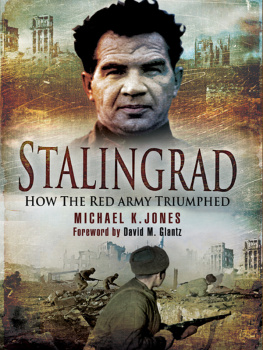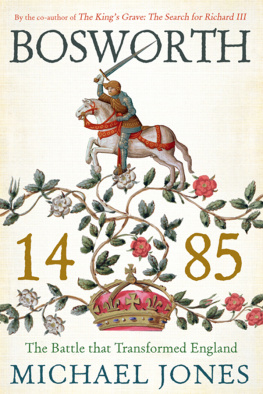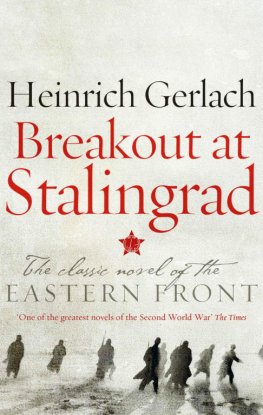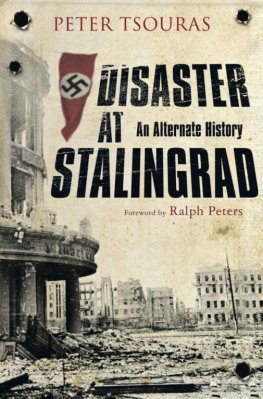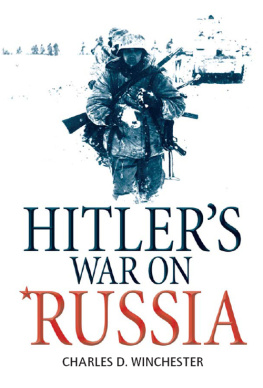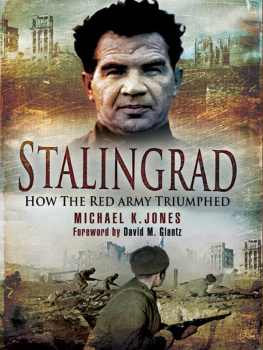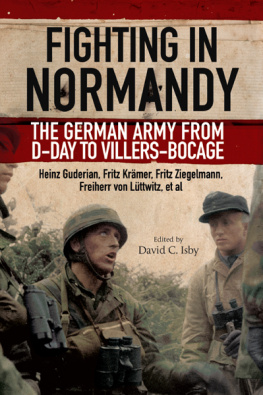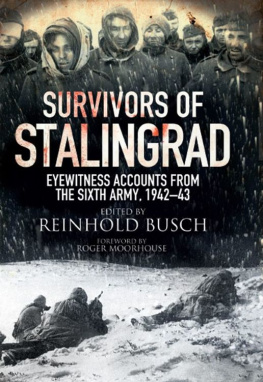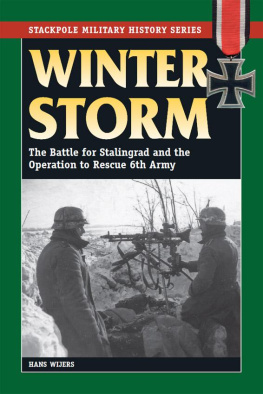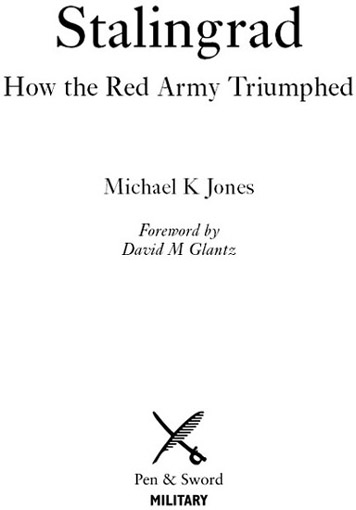
First published in Great Britain in 2007 by
Pen & Sword Military
an imprint of
Pen & Sword Books Ltd
47 Church Street
Barnsley
South Yorkshire
S70 2AS
Copyright Michael K Jones 2007
ISBN: 9781848842014
Digital Edition ISBN:9781848847071
The right of Michael K Jones to be identified as the author of this work has been asserted by him in accordance with the Copyright, Designs and Patents Act 1988.
A CIP catalogue record for this book is
available from the British Library.
All rights reserved. No part of this book may be reproduced or transmitted in any form or by any means, electronic or mechanical including photocopying, recording or by any information storage and retrieval system, without permission from the Publisher in writing.
Typeset in Ehrhardt by
Phoenix Typesetting, Auldgirth, Dumfriesshire
Printed and bound in England by
CPI UK
Pen & Sword Books Ltd incorporates the imprints of Pen & Sword Aviation, Pen & Sword
Maritime, Pen & Sword Military, Wharncliffe Local History,
Pen & Sword Select, Pen & Sword Military Classics and Leo Cooper.
For a complete list of Pen & Sword titles please contact
PEN & SWORD BOOKS LIMITED
47 Church Street, Barnsley, South Yorkshire, S70 2AS, England
E-mail:
Website: www.pen-and-sword.co.uk
The earth was belching out red-hot lava
A volcano, pouring fire and metal,
Enveloping the burning city with ash
As if it was poison.
And for those who clawed themselves out from this hell
And got used to the glow of whiteness,
The black ash of Stalingrad blows into their old mens dreams.
Alexander Rytov
Contents
Chapter Five: Courage Born of Desperation
The September Battles
Chapter Seven: Mikhail Panikakha
Anatomy of a Heroic Deed
Preface
On 27 September 1942 a recent arrival at Stalingrad, a Russian soldier named Josef Furman, wrote to his family in Irkutsk in Siberia: Today is my second day on the frontline, where the greatest battle in human history is taking place. Every soldier felt a heady mixture of exhilaration and terror on entering this ghastly battlefield. But Furman had caught a real truth about the mighty clash of arms between Germany and the Soviet Union which became a defining moment of the Second World War. The battle of Stalingrad will always fascinate us.
This book concentrates on the Russian defenders of the city: the embattled 62nd Army. It attempts to recreate the spirit of a truly remarkable band of fighters. The life expectancy of one of these soldiers was less than two days. Not a second passes without the sound of artillery salvoes, the shriek of falling shells, the rattle of machine gun fire, Furman continued. Everywhere there are corpses. I do not know what will happen in the next hour. Yet those who survived this terrible initiation developed an extraordinary will to survive. Red Army veterans believe it was this spirit forged in the most horrifying conditions which enabled them to withstand an annihilating enemy offensive.
Because Stalingrad was a catastrophic German defeat the story of this famous battle has usually been told in terms of the strategic blunders of Hitler and his High Command. But Stalin and his commanders also made serious mistakes. They had never intended to leave Stalingrads defenders cut off in the city for so long. But in September 1942 poor military planning led to the failure of one Soviet relief effort after another, forcing the 62nd Army to fight the over whelming might of the Germans entirely on its own.
How it managed to do so still mystifies surviving Russian veterans of the battle. On 11 November 1942, when the Germans launched their last major assault on Stalingrad, the 62nd Armys war diary recorded that the strength of some of its key divisions had shrunk to only a few hundred men. The battered remnants clung to a narrow strip of land along the Volga, and floating river ice impeded the arrival of desperately needed reinforcements. The army is in an exceptionally difficult situation, the war diary noted grimly. Only extra ordinary heroism and steadfastness in combat have allowed us to hold our present positions and continue to resist the considerably superior forces of the enemy.
I want to present the defenders view of their incredible triumph. It is a point of view that has begun to emerge only recently, in the wake of the collapse of the Soviet communist state. Anatoly Kozlov, head of the Volgograd veterans association, told me of a remarkable, spontaneous decision taken by these old fighters at a reunion held on the fiftieth anniversary of the battle: We decided to tell the truth about Stalingrad, giving a simple, direct account of the fighting, and avoiding all communist rhetoric and clichs. Anatoly has been an invaluable source of guidance.
For the last five years I have led battle tours of Stalingrad, working closely with Russian veterans of the fighting. I am enormously grateful to Alan Rooney, of Midas and Holts Battlefield Tours, and Oleg Alexandrov, of our associated Russian travel company, who helped me create this tour. It was Oleg who set up our regular meeting with the Moscow Council of War Veterans and their kindness and hospitality kindled my interest in the battle of Stalingrad. Some scattered landmarks of the fighting exist in the present city renamed Volgograd in the Kruschev era but it is the testimonies of veterans which make these ruins come alive again. I have conducted many interviews with survivors of the 62nd Army in Moscow and Volgograd. For my meetings in Moscow I am particularly grateful to Maria Faustova, secretary of the 62nd Army veterans council; for those in Volgograd, to Svetlana Orgasteva, deputy director of the Volgograd Defence Museum.
I am a battle psychologist interested in the power of morale, motivation and inspirational leadership and for this reason it has been vital to get grips with the leadership given to the defenders of Stalingrad. I have talked to many veterans about this but the insights shared by Anatoly Grigorevich Mereshko form the core of my account. Colonel-General Anatoly Mereshko rose after the war to become Deputy Commander of the Warsaw Pact. He has given weeks of his time to this project and travelled with me round Stalingrads battle sites. Without his unstinting support and co-operation this book would never have happened.
Mereshko was on the 62nd Army staff, an officer for special tasks reporting directly to Vasily Chuikov, the army commander. His forthright testimony has been enhanced by the considerable help of Alexander Chuikov, who shared with me his fathers personal reminiscences of the battle and gave me access to his private papers and photographs, and Nathalia Rodimtseva, who did the same for her father, Alexander Rodimtsev, commander of the 13th Guards Division. In September 1942 Chuikov brought Rodimstev onto the Army Council and together they created a different style of leadership and the fighting tactics that allowed them to defy the German onslaught.
Chuikov and Rodimtsev led from the front, and by doing this began to create a new mood of self-belief amongst the Russian defenders. Rodimtsevs division had been badly mauled during the German advance into the Donbas in July 1942, and when it arrived in Stalingrad it had only a leavening of veterans: the majority of its men were recruits and conscripts, despatched to the burning city after only a few weeks training. Similarly Batyuks 284th Division, which joined the Stalingrad battle in late September, had suffered serious casualties that summer in the fighting north-west of Voronezh and had been hurriedly recreated in the Ural Military District in August 1942. As David Glantz has emphasized to me, it is remarkable that both divisions performed as well as they did in the city fighting.
Next page
